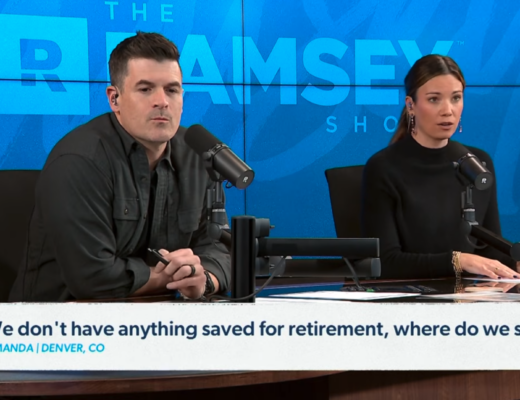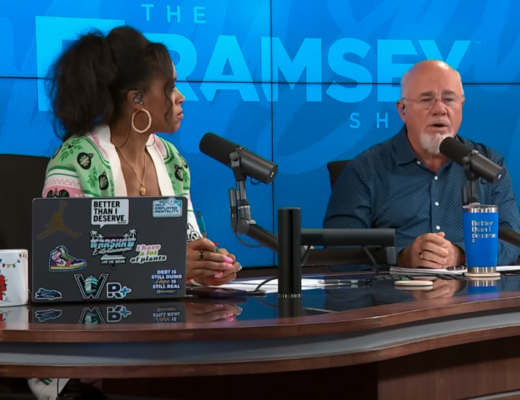Dave Ramsey recently listened to a call on The Ramsey Show that perfectly illustrates why so many people struggle financially. The caller, Alan, introduced himself as “an idiot” who knew “nothing” about finances. He was considering bankruptcy for $12,000 in debt with a baby on the way. His story highlights a critical truth Dave Ramsey has observed time and again: our financial problems often stem not from the math, but from our mindset and the excuses we make.
What struck Dave Ramsey most about Alan’s situation wasn’t his debt, which was relatively modest, but his self-defeating attitude and the excuses he used to avoid taking control. He’d been referred to Dave Ramsey’s program a year earlier but dismissed it until desperation finally drove him to call. This pattern is all too common. We often wait until we’re backed into a corner before seeking help, letting excuses hold us back.
The Bankruptcy Myth
Alan’s first instinct was to file for bankruptcy over $12,000 in debt. This reveals a dangerous misconception many people have: that bankruptcy is an easy escape hatch for relatively small amounts of debt. Dave Ramsey immediately shut this down, and rightly so.
Bankruptcy should be a last resort for truly insurmountable financial situations, not a quick fix for manageable debt. The fact that Alan considered this option shows how little financial education most of us receive. We jump to drastic measures before exploring practical solutions.
Income: The Real Problem
The core issue wasn’t Alan’s debt but his inconsistent income. At $15 per hour with unpredictable hours, he was bringing home between $400 and $800 per week. When Dave and his co-host George heard this, they immediately identified the real problem: insufficient and unreliable income, not just the debt or any excuses Alan might have made about his situation.
This is a crucial lesson. Often, we focus on debt when we should focus on income and stop making excuses. Consider these realities about today’s job market:
-
Many retail and warehouse positions now start at $18–20 per hour
-
Consistent 40-hour positions provide stability for financial planning
-
Multiple employers are desperate for reliable workers
Alan’s plan to eventually use his real estate license as a side gig showed he was thinking long-term. Still, Dave and George correctly pointed out that he needed immediate solutions, not potential commissions months down the road or excuses to delay action.
The Car Solution
The breakthrough moment came when they discussed his wife’s car. She owed $7,000 on a vehicle worth approximately $30,000. The solution was crystal clear: sell the car, pay off all the debt, and still have enough left to buy a reliable used car with cash.
This exemplifies Dave Ramsey’s practical approach to debt elimination. Sometimes we’re sitting on the solution to our problems without realizing it. By selling that one overpriced asset, Alan could:
- Eliminate all $12,000 of debt immediately
- Purchase a reasonable replacement vehicle
- Still have money left for baby preparations
This simple math shows why bankruptcy would have been an absurd option for Alan’s situation.
The Mindset Shift
What resonated most with me was Dave’s closing comment: “You’re not an idiot. You’re a good man. You’re a husband. You’re a father. You’re a hustler.” This mindset shift is often the most important part of financial transformation.
Alan’s self-labeling as “an idiot” was holding him back more than his debt. By accepting a more empowering identity, he could approach his finances with confidence rather than shame.
I’ve seen this repeatedly in financial counseling. People who view themselves as victims of circumstance remain stuck, while those who embrace responsibility find solutions. The difference isn’t intelligence or resources—it’s mindset.
Alan’s story reminds me that financial problems rarely require complex solutions. Typically, they require clear thinking, practical steps, and the courage to implement immediate changes. With a baby on the way, Alan had the perfect motivation to transform his finances and his self-image.
By following Dave’s advice—selling the car, increasing income, and learning financial principles through Financial Peace University—Alan and his wife could be debt-free with an emergency fund before their baby arrives. That’s not just a financial transformation; it’s a complete life reset that will benefit their family for generations.
Frequently Asked Questions
Q: When is bankruptcy actually appropriate for consumer debt?
Bankruptcy should only be considered when debt is truly insurmountable relative to your income and assets. For most people with under $20,000 in debt, bankruptcy is excessive and unnecessary. The legal costs, credit damage, and emotional toll make it a poor choice for manageable debt amounts.
Q: How can someone with inconsistent income create a reliable budget?
With variable income, base your budget on your lowest expected monthly earnings. Cover necessities first, then pay off debt. Any additional income in better months should be allocated toward debt repayment or savings. The key is living on last month’s income rather than anticipating future earnings that may not materialize.
Q: Is selling a car that’s worth more than you owe always the right move?
When you have significant equity in a vehicle and other pressing debts, selling often makes mathematical sense. However, you must ensure you can replace the transportation reliably. The ideal approach is to sell the expensive car, pay off debt, and purchase a reliable used vehicle with a portion of the proceeds.
Q: How important is spousal agreement when making major financial changes?
It’s essential. In the call, Alan mentioned his wife “doesn’t care about money,” which is a red flag. Financial transformation requires both partners to understand and commit to the plan. This is why Dave recommended they take Financial Peace University together. Without mutual buy-in, even the best financial strategies often fail due to inconsistent implementation.







